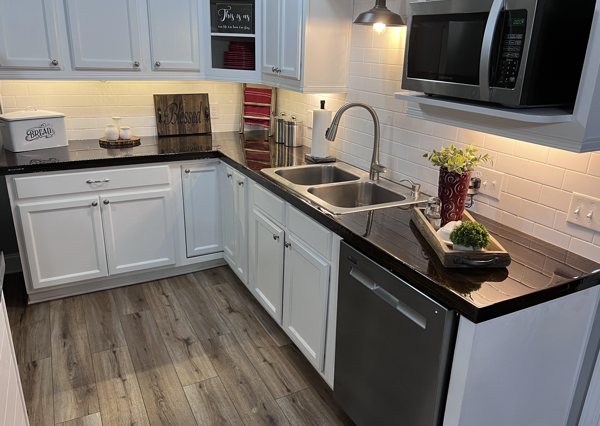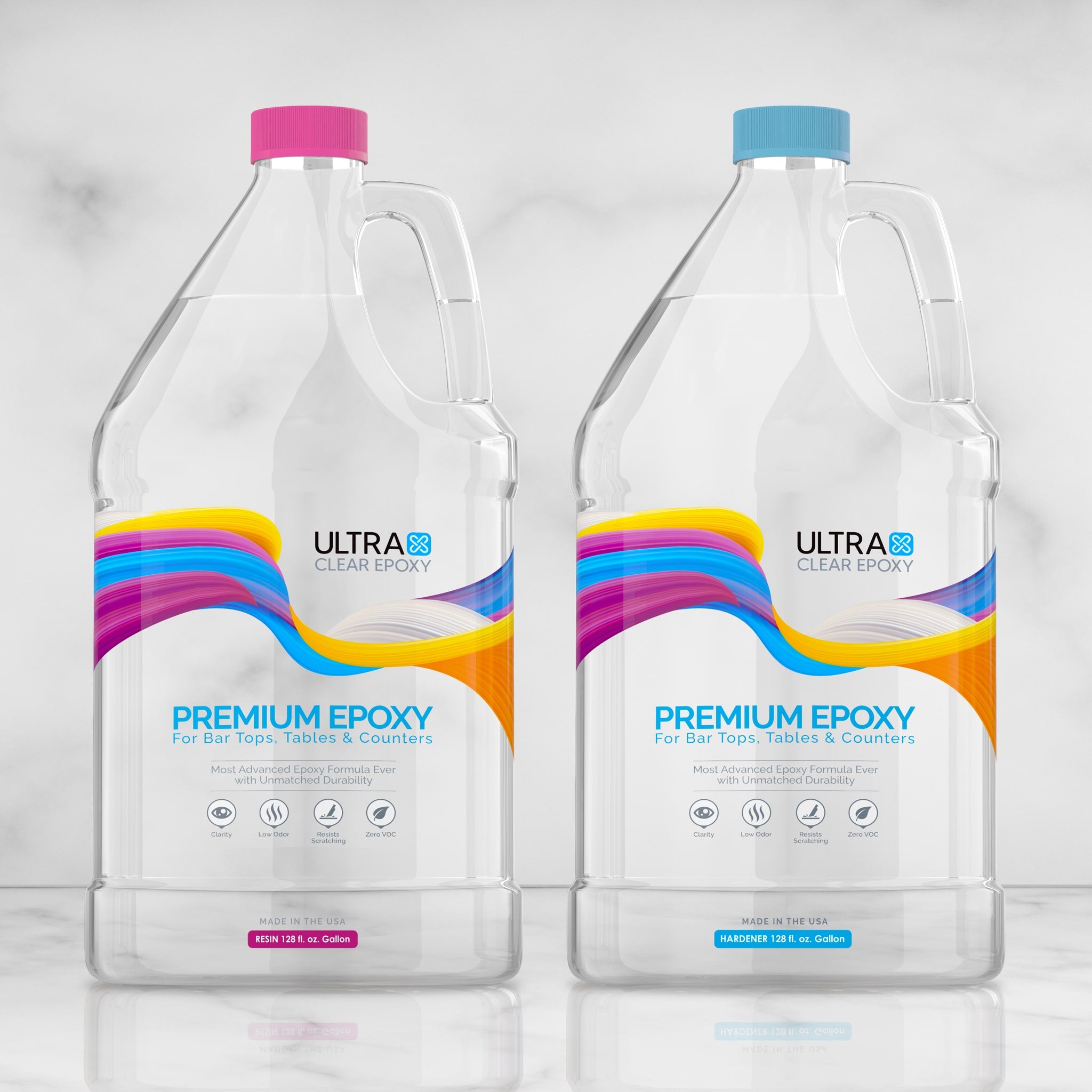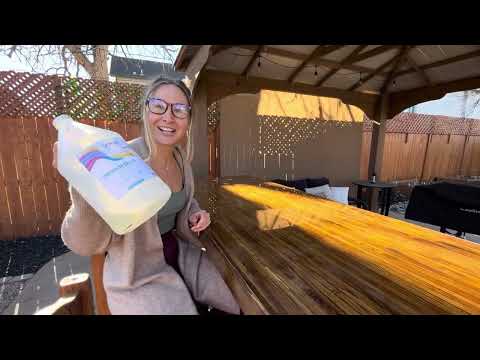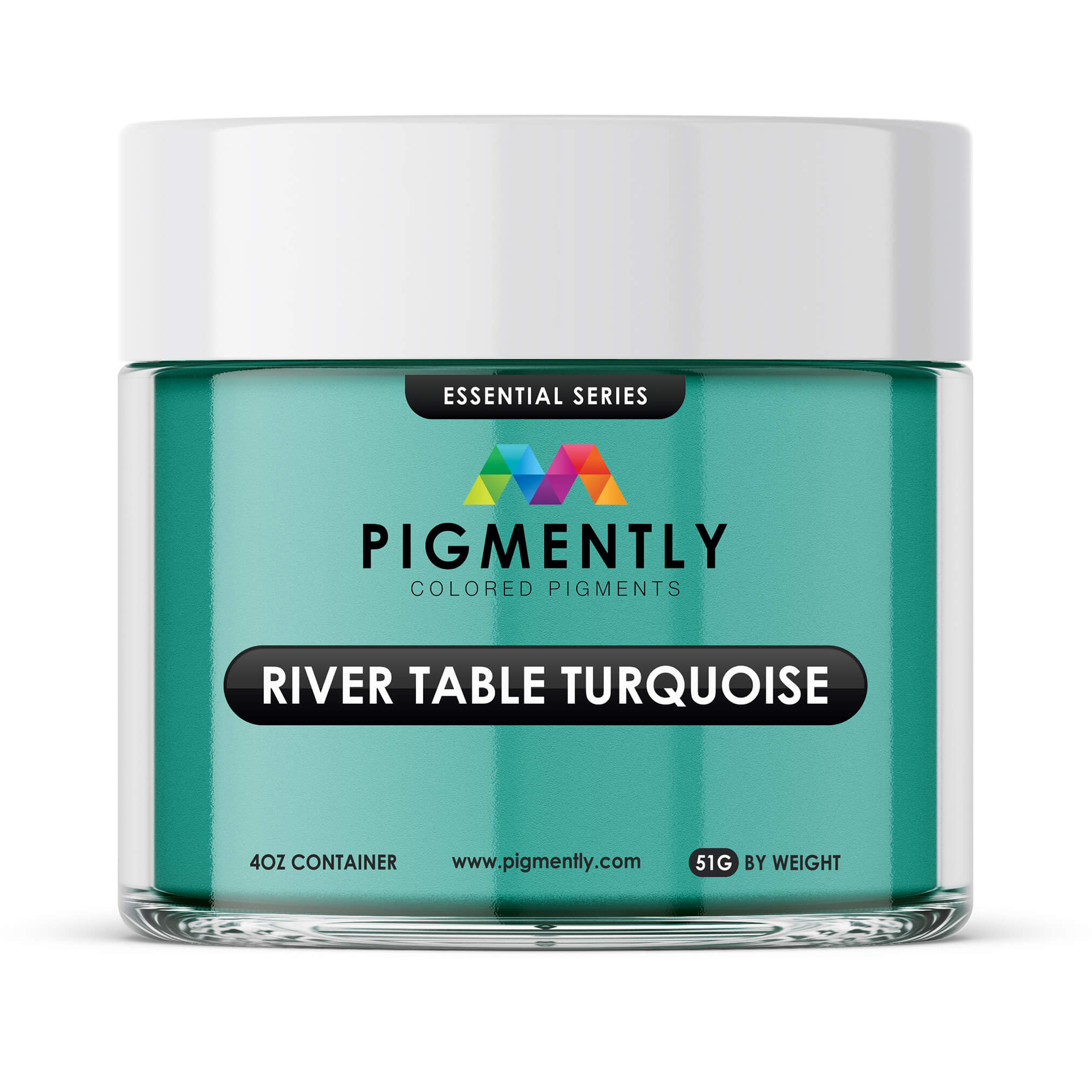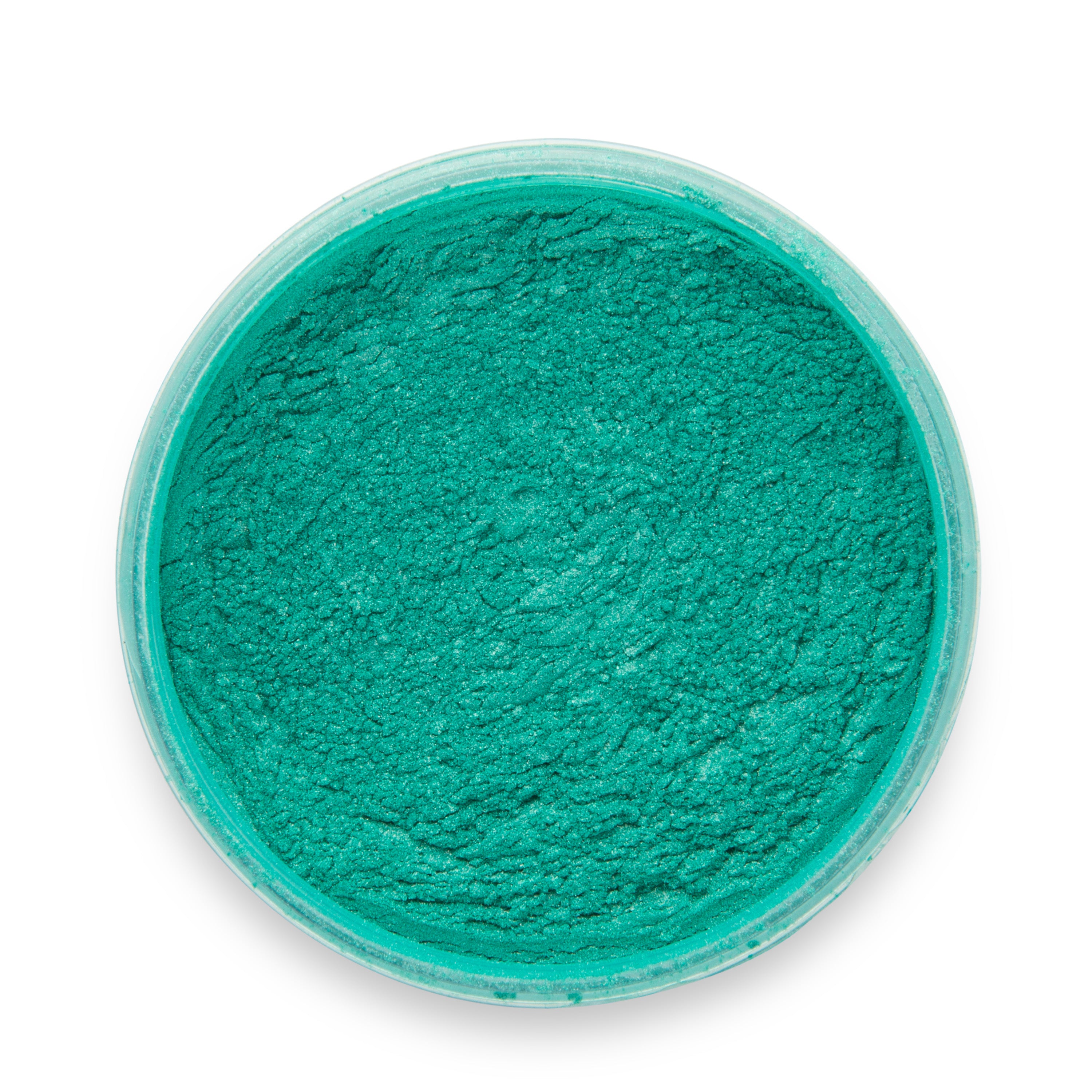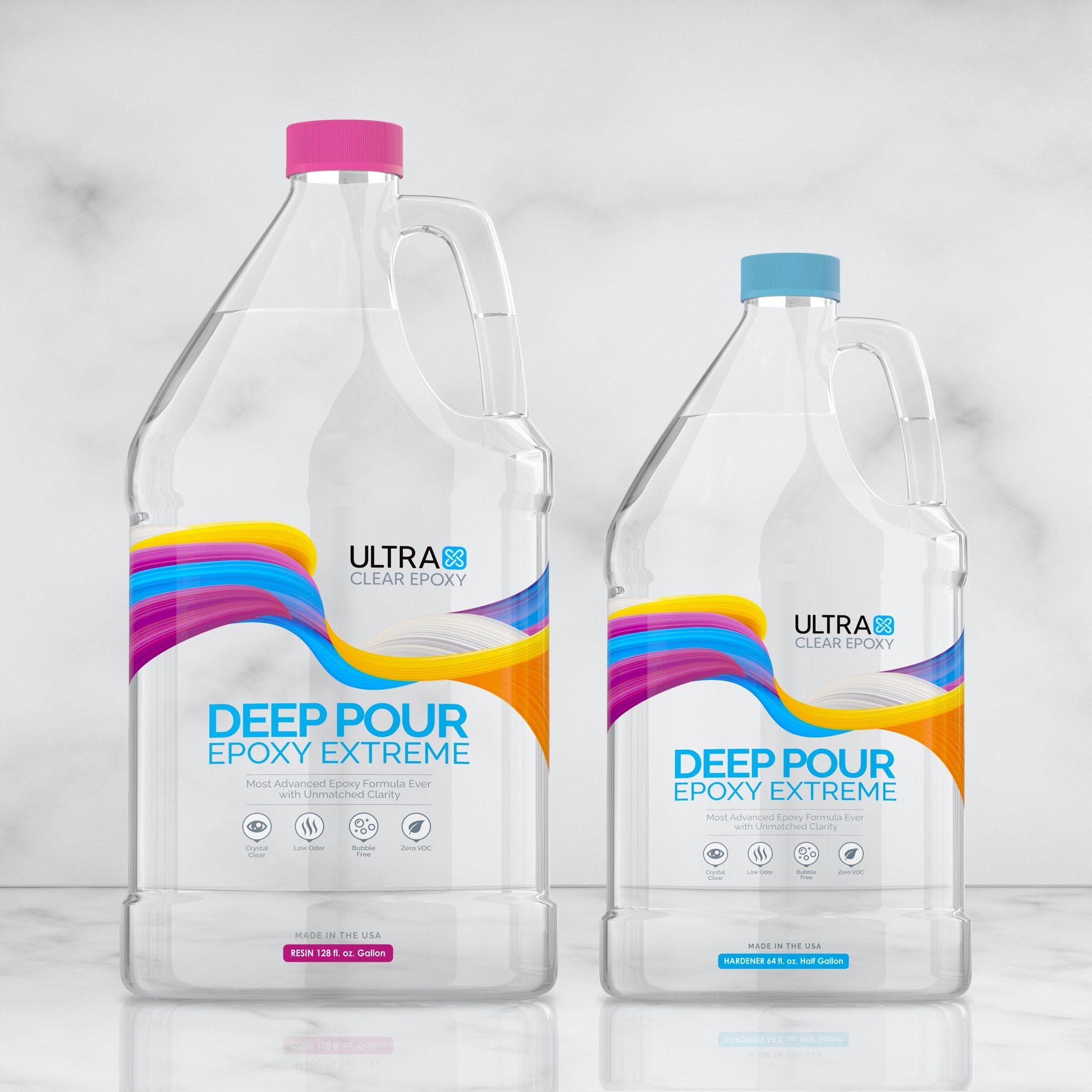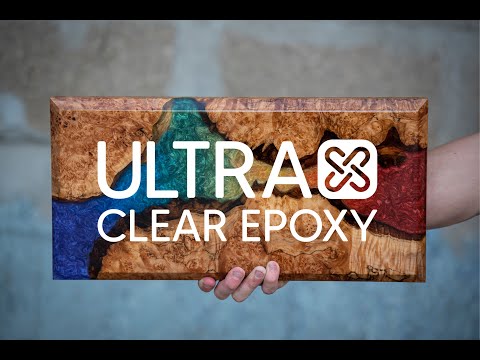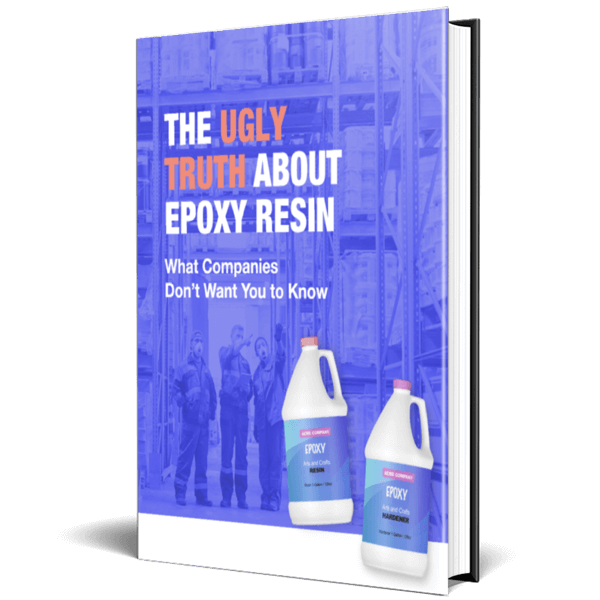When choosing a material for your countertops, it's important that your selection be one with high durability and convenience. Though many material options are viable, only a small number of them are well-suited to countertops.
These materials, which include things like wood, marble, granite, quartz, and a few others, all share some common traits.
Here are some notable examples:
- They're reasonably affordable—though to varying extents.
- They're easy to work with.
- They're receptive to a suitable sealant.
- And they are relatively easy to clean, once sealed.
However, alongside the materials listed above, there exists one other exceptional option that stands out for its durability and ease of use: epoxy resin.
Epoxy resin is a modern material for countertops that performs incredibly well as a countertop material—both as a finish or as the countertop itself.
What is epoxy resin?
Epoxy resin is a plastic polymer that starts out as two separate liquid components. When these components are mixed together, an exothermic reaction occurs, causing the mixture to slowly harden.
Once this process has started, the blended epoxy can be applied in many different ways. Most often, it is used as a finish for a substrate material such as wood.
Upon curing, epoxy then becomes an ultra-durable material with a clear, glossy appearance, and a smooth surface.
Is epoxy hard enough for countertops?
Yes, epoxy is more than hard enough for countertops—in fact, that's one of its primary applications.
Epoxy is incredibly strong, with high resistance to scratching, impact, and several other forms of damage—including moisture damage, thanks to its waterproof surface. Additionally, epoxy boasts a medium level of heat resistance.
And finally, epoxy resin isn't just resilient; it's also low-maintenance and easy to clean.
Because of these features, it's common to apply epoxy resin to kitchen countertops.
Click here to learn more about maintaining your epoxy surfaces!
Additional FAQs related to epoxy countertops
Can you epoxy over old countertops?
Yes, you can. In fact, we've written a guide on it. Click here to check it out!
How many coats of epoxy do you need for a countertop?
Just one flood coat with a high-quality epoxy resin is all you need. We do always recommend a seal coat, which is a thin, brushed-on coating that you do just before the flood coat. That will help you prevent air bubbles.
How do you spread epoxy on countertops?
A good countertop epoxy resin will be self-leveling and spread on its own naturally. You can guide the spread as you're pouring out your flood coat by moving the container as you hold it over the substrate surface. This will help it spread faster and ensure you get full coverage.
See the countertops of other UltraClear users in our Kitchen Countertops Spotlight!
Have questions? Want advice? Contact us!
If you have any questions about using epoxy for countertops, or if you'd like assistance in planning an epoxy project, please reach out to us at UltraClear Epoxy—our epoxy experts are ready to assist!
You can contact us via phone or email here. During business hours, you can also text chat online with one of our resin specialists by clicking the Help button at the bottom of your screen.
In our online store, you'll find a variety of useful tools and supplies, ideal for resin projects, plus our award-winning UltraClear Bar & Table Top Epoxy and our UltraClear Deep Pour Epoxy.

